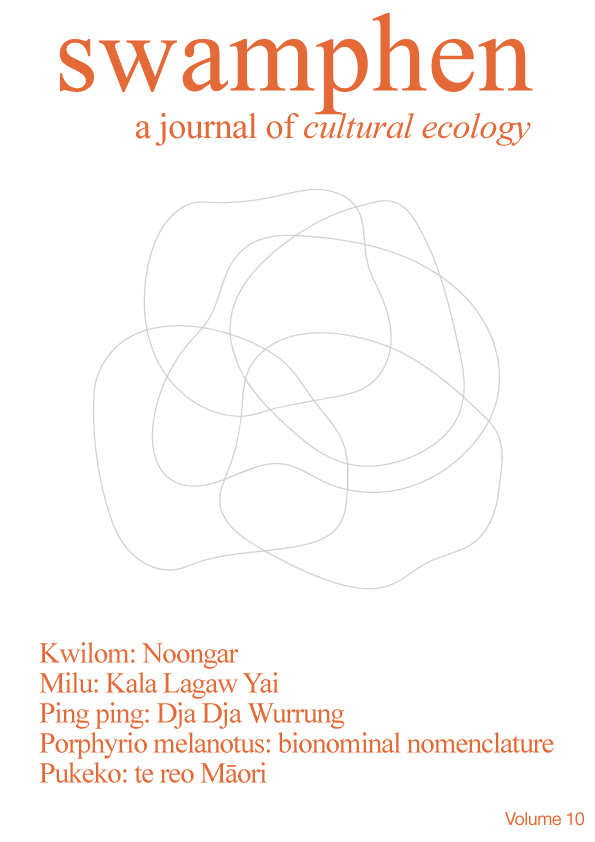On Sharks Unseen
Oceanic Non-Encounters and Multispecies Ethnography
DOI:
https://doi.org/10.60162/swamphen.10.18030Keywords:
sharks, multispecies ethnography, Hebrides, basking shark, endangered species, absence, attentivenessAbstract
Basking sharks are the planet’s second-largest fish, and in the summer they feed on plankton in the Sea of the Hebrides, in Scotland. Once hunted for the oil contained in their livers, basking sharks are now a protected species, with tour companies offering the possibility to see and even snorkel with them. There is no guarantee of a sighting, however. This essay takes as its point of departure one such unsuccessful attempt to find basking sharks, undertaken as part of a research trip to learn about the history of shark hunting in the north-east Atlantic. Engaging with literature from multispecies ethnography, the essay considers the implications of treating absences as a condition of research on underwater species. It asks what form the tenets of multispecies ethnography – such as arts of attentiveness, immersion, and sustained participation in the lives of others – can take in oceanic settings. It suggests that direct observation cannot always account for relations with the unseen, and that methodologically and conceptually, the non-encounter offers a way of thinking through the ways that human activity can contribute to the loss of other species.
Downloads
Published
Issue
Section
License
Authors who publish with this journal agree to the following terms:- Authors retain copyright and grant the journal right of first publication with the work simultaneously licensed under a Creative Commons Attribution License that allows others to share the work with an acknowledgement of the work's authorship and initial publication in this journal.
- Authors are able to enter into separate, additional contractual arrangements for the non-exclusive distribution of the journal's published version of the work (e.g., post it to an institutional repository or publish it in a book), with an acknowledgement of its initial publication in this journal.
- Authors are permitted and encouraged to post their work online (e.g., in institutional repositories or on their website) prior to and during the submission process, as it can lead to productive exchanges, as well as earlier and greater citation of published work (See The Effect of Open Access).

